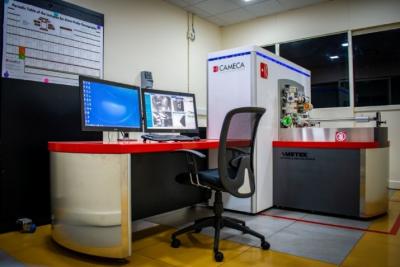Atom Probe Tomography

Booking Link
Description
IIT Madras has established the National Facility for Atom Probe Tomography (NFAPT) which houses a state of art atom probe tomography "Local Electrode Atom Probe (LEAP 5000 XR)" along with "Helios Dual Beam Scanning Electron Microscope with Focused Ion Beam (FIB)" for LEAP sample preparation. IIT Bombay, as a founding partner institute, has a remote terminal for the operation of the instrument and software for the analysis of the data after data acquisition. This is the first remotely operable LEAP facility in the world. Any researcher in India can use the facility by contacting the NFAPT management. More details can be found on NFAPT | Home (iitm.ac.in)
Make and Model
Make: CAMECA Model: LEAP 5000XR
Application
Interface analysis in magnetostrictive materials. Grain boundary analysis in metals. Investigation of phase change separation processes. Atomic scale characterization of dopants. Characterization of advanced alloys. Thin film characterization. Oxide growth in metals.
Faculty in-charge
Contact Email
aptlab@iitb.ac.in amitkumbhar@iitb.ac.in
Location
National Facility for Atom Probe Tomography (NFAPT) HSB-134, Indian Institute of Technology Madras Chennai-600036, India. Hardware and Software for remote access and analysis located at: Room No: 414,1st Floor Department of SAIF/CRNTS Indian Institute of Technology, Bombay Powai – 400076
Contact No: 022-21596864
Other Contact Person
- Mr. Amit Kumbhar
